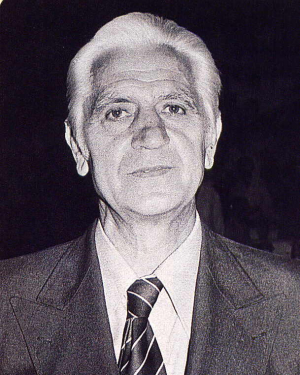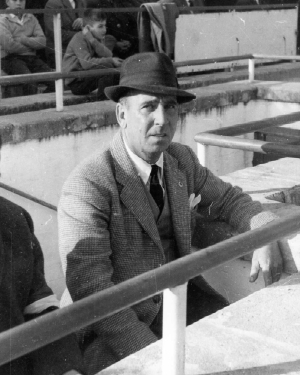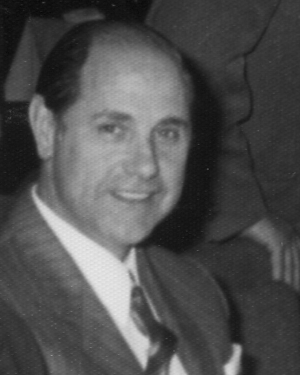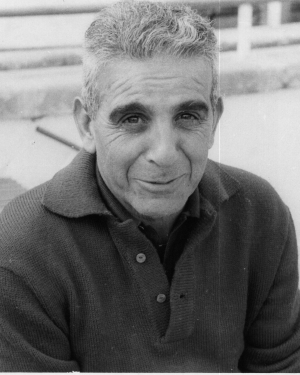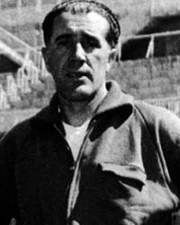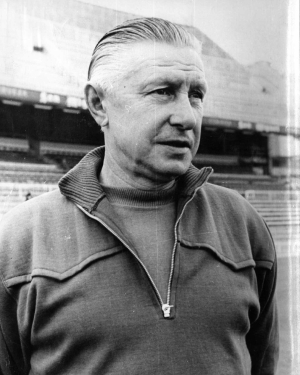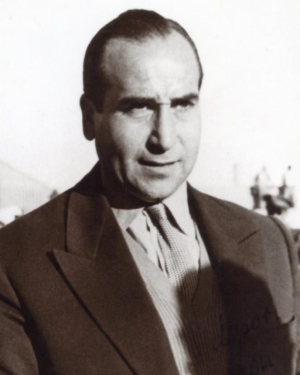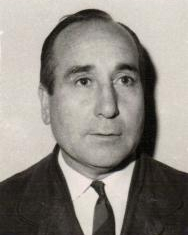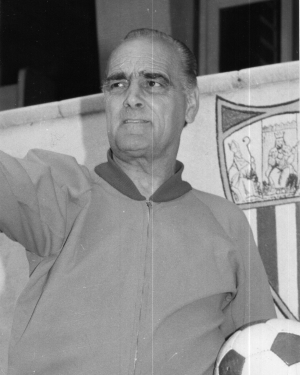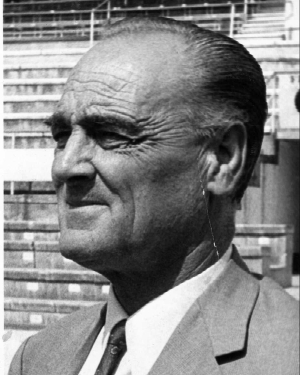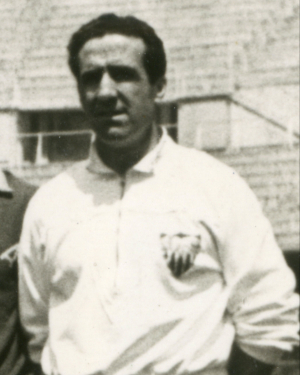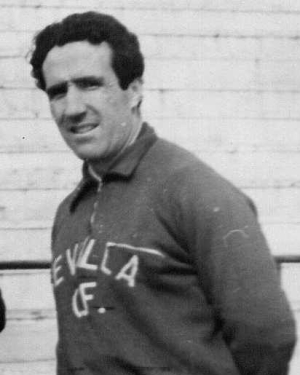The Slovakian coach led the "Blanquirrojos" in the 1964/65 season. He achieved similar results to his predecessor, placing Sevilla FC in mid-table.
The famed Brazilian coach coached Sevilla FC in the 1963/64 season. He placed the team in a discreet ninth position.
The famed Brazilian coach coached Sevilla FC in the 1963/64 season. He placed the team in a modest ninth place. Don Pedro, as he was known, opted for tactical innovation and youth, rarely repeating the starting eleven and giving minutes to young players who turned out to be important pieces in the future. The incoming board decided against keeping him on at the end of the season, and he was replaced by Fernando Daucik.
The former goalkeeper of the club's golden era was another home-grown coach. He replaced Antonio Barrios in the 1962/63 season with three games to go, managing to save the team from relegation.
He coached Sevilla FC between 1960 and 1963. In the 1961/62 season he led the team to sixth place and managed to reach the final of the Spanish Cup, which they lost 2-1 to Real Madrid. The presence in the final meant qualification to play in the European Cup Winners' Cup the following season. The decline in the team's form in the 1962/63 season forced him to be replaced by the legendary José María Busto.
After Sevilla FC played in the relegation play-offs in 66/67, Antonio Barrios returned to the club for the 1967/1968 season with the aim of getting the team back on track and halting the downward trend of recent years. After only 3 wins in 18 league games, he had to be replaced by Juan Arza, who failed to avoid relegation after 31 consecutive years in the first division.
He coached Sevilla FC in the 1959/60 and 1960/61 seasons. Among his achievements was that the team played attractive and effective football. Under his guidance, the team had one of the best seasons after Helenio Herrera's departure, finishing fourth, and beating some of the strongest teams in the country. In his second season the team finished in mid-table.
The Biscay-born coach replaced Janos Kalmar until the end of the 1958/59 season, leaving the team out of danger in twelfth place.
He managed the team for only ten matches in the 1958/59 season. Only one win in ten matches cost him his job. He was accompanied by Mario Klug as translator, who shortly afterwards took over the reins of sides in the youth ranks.
He coached the team for only half a season in 1957/58, going down in history as the coach who led the team in its first continental matches. He was sacked in December 1957 due to poor results.
The former player from Utrera became a coach of the club, covering several temporary vacancies that occurred on the bench during various seasons. In the 1957/58 season he replaced Satur Grech until the end of the season, in 1970/71 he replaced Merkel on the last day of the season and in 1971/72 he replaced Georgiadis for two games. His courage to face difficult situations earned him the nickname of Diego Valor, like the hero of the radio serial of the 1950s.
The controversial and eccentric Spanish-Argentine coach began his tenure at the helm of Sevilla FC in 1953/54 and finished his tenure in 1956/57. He achieved a runner-up finish in the league and another in the cup, with the team finishing fifth in his first season. In the second and third seasons, his side finished fourth and then second in the season which marked his farewell. The runner-up finish in La Liga helped the team qualify for the European Cup.



 Spanish
Spanish
 English
English
 عربي
عربي
 中文
中文
 日本語
日本語
